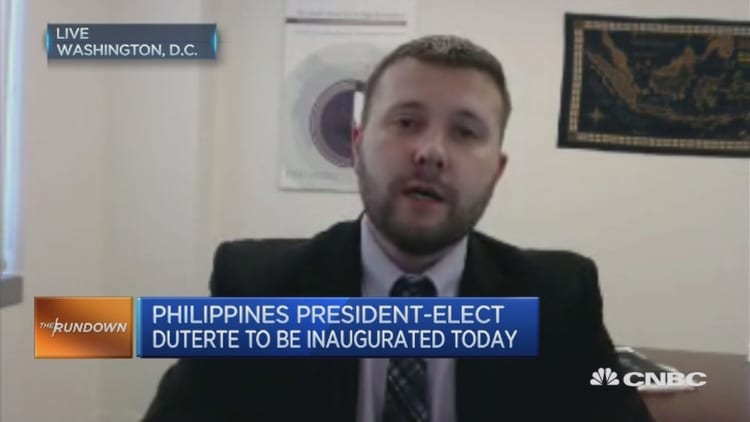If you've followed the upheavals in Southeast Asian politics over the last few decades, you'll be well familiar by now with the phenomenon of the Rent-a-Mob.
We've seen it repeatedly in protests, demonstrations, or worse, in places like Thailand, and Indonesia. Stand in an not-so-orderly queue and wait to be next in line to be handed standard issue logo-emblazoned T-shirt, and matching logo-emblazoned baseball cap.
Possibly also pre-painted placards with incendiary slogans, as the occasion and gravity of the situation demands. Or more usually, as organizers deem. Accessorize and personalize with bandanas and face paint, as per individual preference or budget.
In return, reasonably attractive recompense to offset your day's wages, or to make up for the opportunity cost of not running your own stall or street business. In some situations, as we've seen in Thailand, corporate sponsors with specific political leanings get involved - meals, drinks, umbrellas, bottled water. More like a raucous school outing.
It is true in places like Indonesia and Thailand that Rent-a-Mobs have turned violent. But the instances where people have actually been killed have been isolated, one-off, separate from and unrelated to the crowds, but still organized for specific effect.

In the Philippines though, transactional violence takes a much more sinister turn. Liberals may be not be comfortable with US target lists and drone strikes. I'm not sure kill-lists and pre-announced assassinations are any more acceptable. But that is what's been happening in the Philippines, with the much- talked and written about Davao Death Squads. Or, as some prefer, Duterte Death Squads. And it's threatening to escalate to a national level. Philippine experts almost uniformly warn that one of the greatest risks of the new Duterte presidency is the rise of paramilitaries.
We know Duterte is commandeering two army divisions and about 3,000 police to do his bidding in his putsch against druglords and other criminals. These men are already in uniform, and trained.
What worries Philippine watchers and analysts is the potential deputization of people with little or no training, towards Duterte's ends.
To try and imagine what that would be like, it would be useful to take a closer look at the DSS, the vigilantes who hunt down and kill ''criminals'' extra-judicially on behalf of Duterte, whether it's with his blessing, or even awareness, or not.

Who are these people? Many column inches have included them, but described them merely in passing as an anonymous, faceless lot. They kill. That's about all most of us know. Not why, not how.
Human Rights Watch knows a fair bit more, and in grisly yet also human detail. HRW managed to interview dozens of witnesses, family members of victims, their friends, NGOs including Catholic-church affiliated groups, as well as current and former vigilante group members.
The profile is fairly uniform. Poor, disadvantaged, not well educated, are denominators common to most. More interesting though is the fact many were former militia of one sort or another (Muslim secessionist, Communist revolutionary, or any of several cause-based groups). The leverage against them, and for their optioning-in to become vigilantes - either refocus your energies towards cleaning-up crime, or serve time. So, an easy way to understand their situations is to describe them as ''Duterte's Dozens''. Or more like several dozens.
The motivation isn't hard to understand, for people who've lived at best unremarkable, but more likely marginalized, lives. Give a farmer a uniform and a gun, and suddenly you've got a revolutionary. Or a vigilante. In the West, it's more like mall cops - imputed power and authority that simply comes from a uniform and a badge.
If you've got something on them, leverage to encourage compliance and increase the likelihood that he'll carry out whatever mission he's been assigned, then you have a paid avenger.
The Philippines needs to be very careful. Give a man a gun, and he can be a defender. Or an outright killer and assassin.


